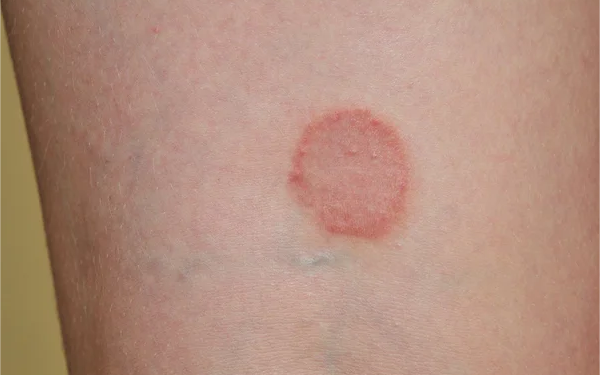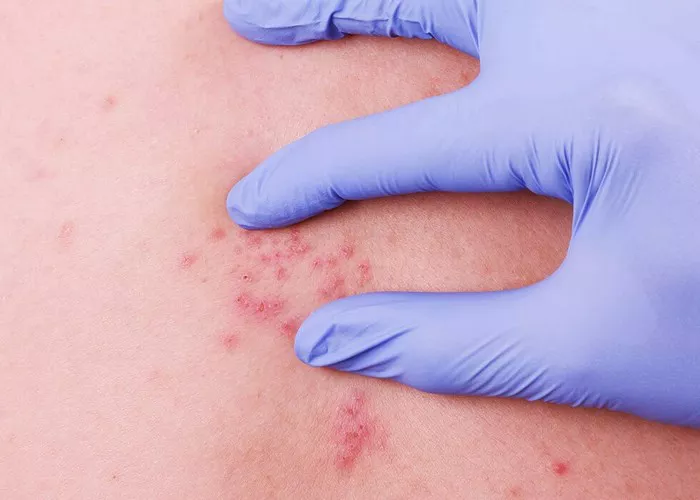Ringworm is a common fungal infection that affects the skin, hair, and nails. It’s known for causing itchy, circular, red patches on the skin, and it can appear anywhere on the body. While ringworm is typically a mild condition that responds well to antifungal treatments, it can sometimes lead to complications. One question that people often ask is whether ringworm can cause weight loss.
In this article, we’ll explore the link between ringworm and weight loss, how the infection affects your body, and what you can do to manage both the symptoms and potential side effects. Let’s dive into the details.
What Is Ringworm?
Ringworm, medically known as tinea corporis, is a fungal infection caused by dermatophytes, a type of fungus that thrives on dead skin cells. It is highly contagious and can spread through skin-to-skin contact or by coming into contact with contaminated surfaces, clothing, or objects.
The infection typically presents as a ring-shaped, red, scaly patch with a slightly raised border, often accompanied by itching. While it is most commonly found on the skin, it can also affect the scalp, feet (athlete’s foot), and nails.
How Ringworm Affects the Body
Ringworm usually affects only the outer layers of the skin. The fungus feeds on keratin, a protein found in skin, hair, and nails. The infection leads to inflammation, irritation, and the characteristic rash. Most cases are localized and do not affect internal organs or systems.
In most healthy individuals, ringworm is not a serious health concern. However, in rare cases, especially if left untreated, it can lead to secondary infections or more severe symptoms. The inflammation caused by the infection can also lead to discomfort, which can indirectly affect a person’s well-being.
Does Ringworm Directly Cause Weight Loss?
In general, ringworm itself does not directly cause weight loss. The infection primarily affects the skin, and its symptoms — like itching, redness, and irritation — are localized. Weight loss typically results from conditions that cause systemic changes in the body, such as infections that affect internal organs, prolonged fever, or metabolic disturbances.
However, there are a few indirect ways that ringworm might lead to weight loss, especially in cases where the infection becomes chronic or leads to complications.
Chronic Inflammation and Its Impact on the Body
When the body faces an ongoing infection like ringworm, it triggers an immune response. This immune response involves the release of cytokines, chemicals that help the body fight infections. These cytokines can cause inflammation, which might affect the appetite, digestion, and metabolism.
In some people, chronic inflammation can lead to a loss of appetite. When you don’t feel hungry, you may not eat as much, which can lead to weight loss over time. If you have ringworm for an extended period, this lack of appetite could contribute to a gradual decrease in body weight.
Secondary Infections and Systemic Effects
If ringworm is left untreated or if it is not effectively managed, it can lead to secondary bacterial infections. These secondary infections can spread beyond the skin and cause more serious health issues. For example, if the infection spreads to the nails or scalp, it might cause severe pain, swelling, or even pus formation. This can lead to fever and other systemic symptoms.
In cases of severe infection, the body may enter a state of heightened stress and inflammation. This could cause fatigue, malaise, and a general sense of being unwell, all of which can interfere with eating habits and result in weight loss.
Psychological Stress and Weight Loss
Living with a persistent skin infection like ringworm can also take a toll on mental health. The constant itching and visible nature of the rash may cause emotional distress, anxiety, or depression, which could lead to changes in eating patterns. Stress can also interfere with digestion, further contributing to reduced appetite and weight loss.
Malnutrition from Loss of Appetite
In some rare instances, if someone with ringworm experiences a loss of appetite for a prolonged period, they may become malnourished. Malnutrition can cause a variety of health problems, including fatigue, muscle wasting, and unintended weight loss. It’s important to remember, however, that significant malnutrition is unlikely in mild cases of ringworm. Most people with the condition will continue to eat and maintain normal eating habits.
Treating Ringworm to Prevent Weight Loss
The good news is that ringworm is treatable with antifungal medications. These medications are typically available as creams, lotions, or oral tablets, depending on the severity of the infection. Early treatment can prevent the infection from spreading and reduce the risk of complications like secondary bacterial infections or chronic inflammation.
In addition to antifungal treatments, there are a few general steps you can take to manage the infection and reduce the risk of weight loss:
Follow your doctor’s treatment plan: Whether it’s an over-the-counter antifungal cream or a prescription medication, make sure to follow the instructions carefully and complete the full course of treatment. This will help eliminate the fungus and prevent the infection from worsening.
Stay hydrated: It’s important to drink plenty of fluids, especially if you experience a fever or inflammation. Dehydration can worsen symptoms and affect your appetite, making weight loss more likely.
Eat a balanced diet: Make sure you’re consuming enough calories and nutrients to maintain your health. A diet rich in fruits, vegetables, lean proteins, and healthy fats can help support your immune system and keep you strong while your body fights the infection.
Manage stress: If you’re feeling anxious or depressed because of your ringworm, consider talking to a healthcare provider. Psychological stress can affect your eating habits and overall health. Addressing these issues early on can help you maintain a healthy weight.
When to See a Doctor
While ringworm is a mild condition in most cases, it can sometimes lead to complications. If you experience any of the following symptoms, it’s important to seek medical attention:
- The infection spreads rapidly or does not improve with treatment
- You develop a fever, chills, or other signs of a systemic infection
- You have severe pain, swelling, or pus-filled lesions
- You experience significant weight loss or malnutrition
In these cases, your doctor may recommend a more aggressive treatment plan or investigate other underlying conditions that could be contributing to your symptoms.
Conclusion
While ringworm itself is not a direct cause of weight loss, the infection can contribute to weight loss in some cases through indirect means. Chronic inflammation, secondary infections, stress, and loss of appetite can all play a role in weight changes. However, with proper treatment and care, ringworm is usually a manageable condition, and any associated weight loss should be reversible. If you’re concerned about your symptoms or if weight loss becomes a significant issue, it’s always best to consult a healthcare professional to ensure that you receive the right treatment.
Related topics


























